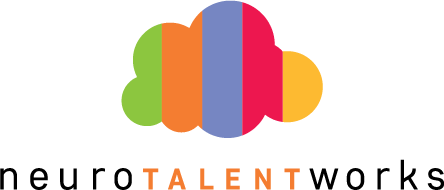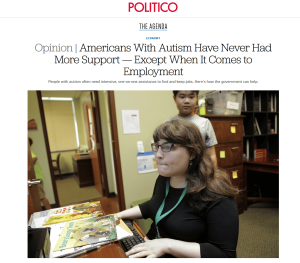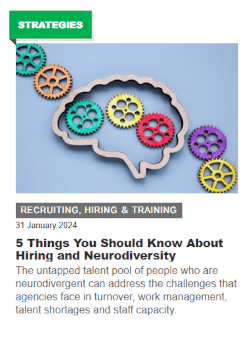In 1991, when I began as a volunteer assisting adults with autism in finding employment, mention of autism would usually draw a quizzical response or vague reference to the movie Rain Man, which had been released three years earlier. Now, such mention usually brings instant recognition: someone saying they have a nephew, niece, grandchild, neighbor or some other connection to a person on the autism spectrum. Popular culture today is replete with autism references and autistic characters.
These shifts have been driven by demographics. The CDC estimates that, as of 2017, more than 5.4 million adults have autism, and the numbers are rising rapidly. As many as 1.1 million young people with autism are expected to turn 18 over the next decade. In my state of California, people with autism constituted less than 5 percent of the population receiving services from the state Department of Developmental Services in the 1980s; today, 1 in 3 DDS clients is an individual with autism.



